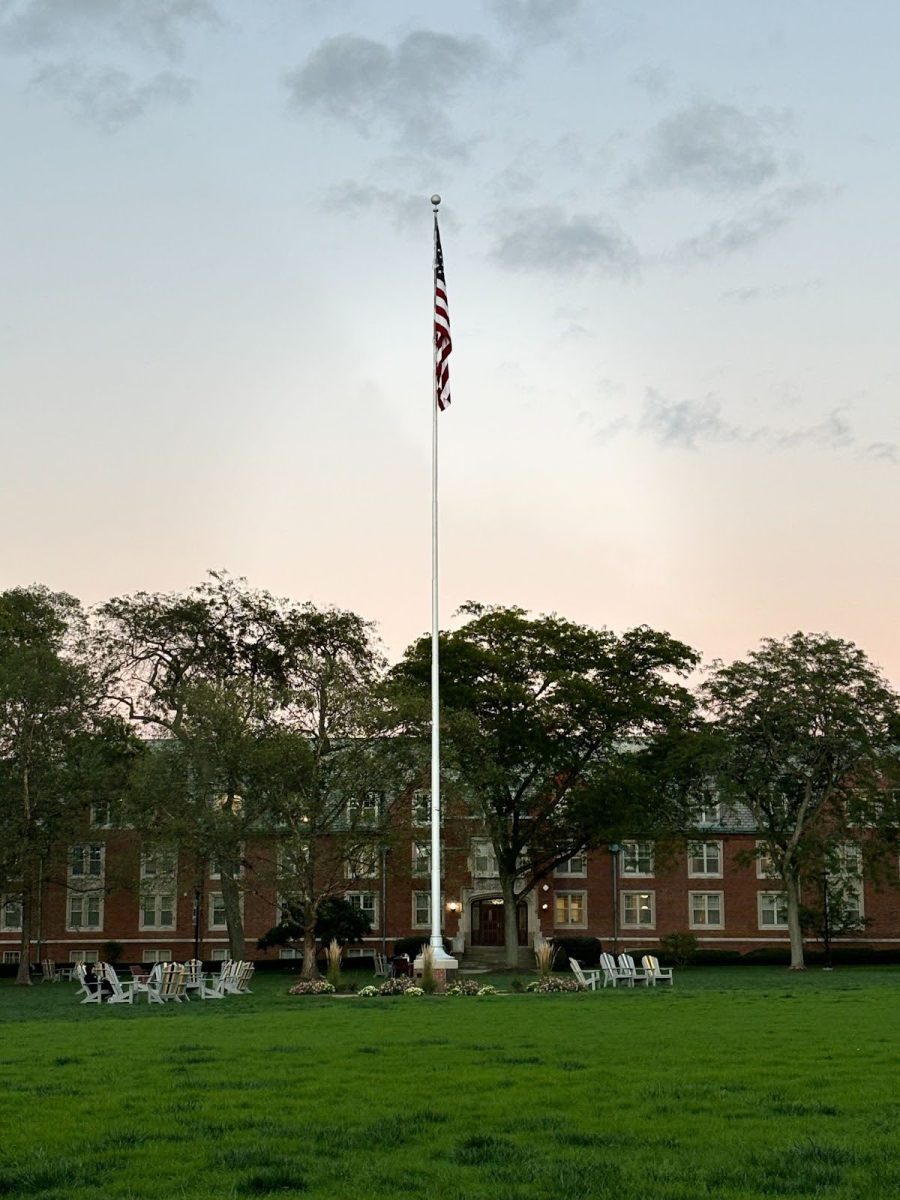For every student under 22, Nov. 5, 2024, will be their first opportunity to vote in a presidential election. Many campaigns are calling this “the most important election of our lifetime.” But is it?
When asked about voting and politics, Dylan Halm ’28 said “While I do think this election is important, I only pay a bit of attention to politics but it just is not a huge deal on campus.” He mentioned the importance of voting and how we all have a “civic duty to vote,” further elaborating “I would not be paying that much attention to politics if it were not an [presidential] election year, it’s just not that important.”
Yet there are other opinions on campus relating to this election. “This election is very important,” said Cole Harvey ’28, “Politics is important, it shapes our society and is what forms the rules and regulations we live with.”
“We have a civic responsibility to vote, everyone should vote,” said Harvey.
Harvey is not alone in this idea of civic duty. Nora Taylor ’28 said, “the reason I plan on voting is because of our civic obligation.” Taylor further added that “it is important for us to vote as it’s how we can affect what happens in the community.”
Savannah Kerr ’27 said, “It is important for us to vote because as young people it is how our voice can be heard. It’s important that our voice is involved in politics.”
A study by the Pew Research Center showcases that 69% of Americans believe that voting is imperative to being a good citizen. Yet while many people seem to believe that voting is very important, some students like William Halberg ’28 don’t know who to vote for. “I just don’t believe either party is worthy of my vote,” he said.
“Politics as it is a s*** show, both parties are not working together and it is leading to an increased sense of polarization,” added Luke Shearer ’28.
And a feeling of increased polarization is not limited to first-year students. Max Nudeau ’27 said, “Yes I believe voting is incredibly important, as is dialogue between the two parties as now they’re so polarized that there is a lack of dialogue in politics.”
Aryan Malte ’25 further added, “Being involved in and paying attention to politics is important but I just can’t see myself getting involved in politics as it is so polarized.”
Malte’s reasoning for staying out of politics is not exclusive to him. Time Magazine states that the majority of Americans grossly underestimate the number of moderates in the other political party by over 70%.
But a vast amount of students don’t know who to vote for or if they should vote at all. Colin Swearingen, who has a doctorate in political science, said “Not voting leaves a cloudy message, what can leave a more succinct message is to vote but leave certain sections blank.”
While Americans bicker on who to vote for, or whether or not to vote at all, some can only wish to be in our position. “I want more than nothing to be able to vote, to be able to make an impact where I live,” said Rafa Di Caesaro ’27, an international student from Peru.
To vote or not to vote? This question resonates not only in the minds of John Carroll students but also in the minds of people across the country. How millions of Americans and the Caroll students answer this question will remain to be seen until Nov. 5, 2024.


